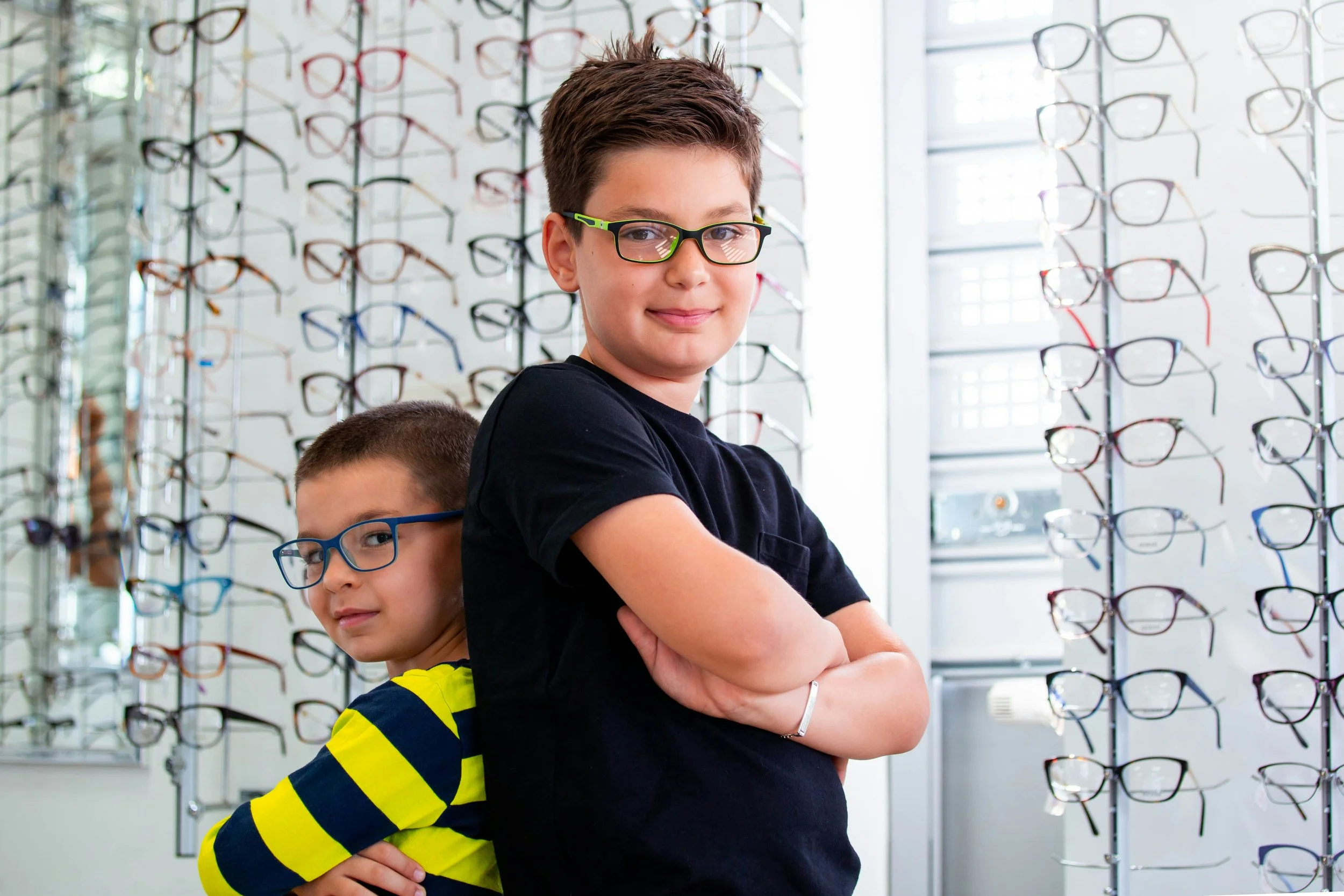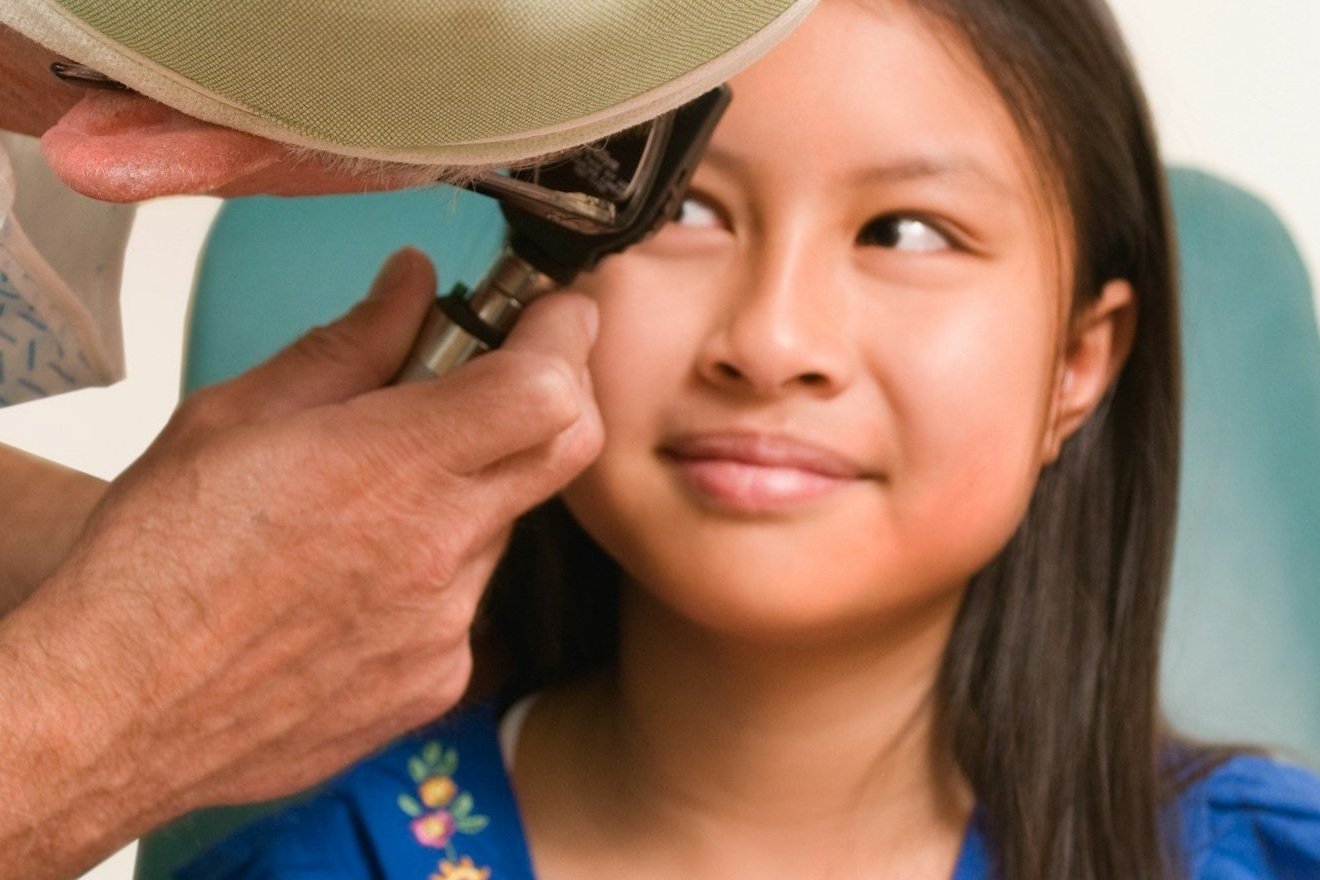
Pediatric Eye Exams Tailored for Young Eyes
Children’s eyes are constantly developing, which makes early and accurate testing critical. A pediatric eye exam is more than a routine check-up — it’s a specialized evaluation designed to identify vision and eye health issues unique to infants, toddlers, and school-aged children. At Bayview Vision, we use pediatric-friendly techniques and technology to ensure your child’s vision grows healthy and strong.
Why Pediatric Eye Exams Are Different
Unlike adults, children can’t always explain when something is wrong with their vision. Pediatric eye exams focus on uncovering issues early — often before they cause learning difficulties, developmental delays, or long-term eye problems.
Our pediatric exams are designed to:
Detect common childhood issues such as nearsightedness, farsightedness, and astigmatism.
Identify hidden conditions like amblyopia (lazy eye) and strabismus (eye turn).
Assess visual skills critical for school readiness, including tracking and depth perception.
Provide parents with clear answers and personalized treatment plans.
-
Our exams are gentle, interactive, and tailored to your child’s age. Depending on their needs, we may include:
Visual Acuity Testing: Using shapes, symbols, or pictures for young children who can’t read letters yet.
Binocular Vision & Tracking: Ensuring eyes are aligned and moving together properly.
Cycloplegic Refraction: Safe, temporary eye drops to measure accurate prescriptions in children.
Red Reflex Test: Checking for cataracts or other congenital conditions.
Depth Perception & Eye Teaming: Assessing how both eyes work together for learning and play.
Full Eye Health Check: Examining inside and outside of the eye to rule out diseases or abnormalities.
Every exam is customized to your child’s developmental stage, so they feel comfortable and engaged throughout the visit.
-
According to the Canadian Association of Optometrists, children should follow this timeline:
6–12 months old: First eye exam to catch congenital or early-onset issues.
Around 3 years old: Preschool exam to confirm healthy visual development.
Every year from age 5 to 18: Ongoing exams to monitor vision during school years.
Even if your child seems to see well, some vision problems don’t have obvious signs. Regular exams give peace of mind and help protect long-term eye health.
The Importance of Early Detection
Vision plays a vital role in childhood learning and development. Studies show up to 80% of what children learn is visual. Conditions like lazy eye or eye turns must be treated early — usually before age 8 — for the best outcomes.
Early pediatric eye exams can help with:
Preventing permanent vision loss from untreated amblyopia.
Supporting reading, writing, and classroom focus.
Improving coordination for sports and play.
Building confidence with clear, comfortable sight.
Compassionate, Family-Focused Care
At Bayview Vision, we make pediatric eye exams fun, positive, and stress-free. Our team takes time to explain results in plain language, answer your questions, and create a plan that fits your child’s needs. Whether that means prescribing glasses, monitoring vision changes, or providing referrals to specialists, we’re here to guide every step of the way.

